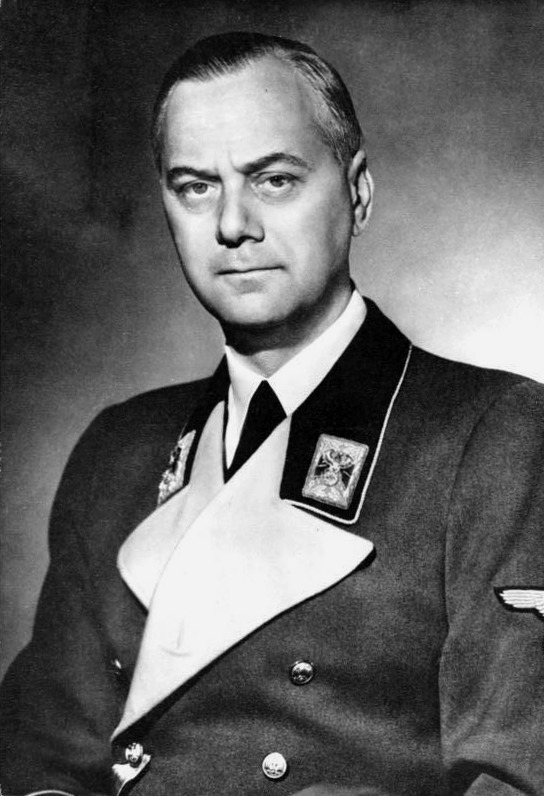THE MYTH OF THE 20TH CENTURY by Alfred Rosenberg
Published by Hoheneichen Publishing House, Muenchen 1941. [Page 215]
We recognize today that the central maximum values of the Roman and the Protestant Church as negative Christianity do not correspond to our soul, that they are in the way of the organic forces of the Nordic racially determined peoples, must give way to them (these forces), and must let themselves be re-evaluated
693257—46—68
1069
2349-PS
in the sense of a Germanic Christianity. That is the thought behind today's religious searching.
*******
[Page 514]
The idea of honor —national honor — is for us the beginning and end of our entire thinking and doing. It does not admit of any equal-valued center of force alongside of it, no matter of what kind, neither Christian love, nor the Free-Masonic humanity, nor the Roman philosophy.
* * * * * * 5ji
[Page 608]
A German religious movement which would like to develop into a folk-church will have to declare that the idea of neighborly love is unconditionally to be subordinated to the idea of national honor, that no act of a German church may be approved which does not primarily serve the safeguarding of the folkdom.
*******
[Page 616]
A German religion will, bit by bit, present in the churches transferred to it, in place of the crucifixion the spirit of fire — the heroic — in the highest sense.
*******
Extracts from "The Myth of the 20th Century," on the primary value of national honor, above Christianity or philosophy, and the need for a Germanic religious movement
Authors
Alfred Rosenberg (Commissioner for Ideological Training; Minister for the Occupied Eastern Territories)
Alfred Rosenberg
Baltic German architect, Nazi politician and ideologue (1893-1946)

- Born: 1893-01-12 (Tallinn)
- Died: 1946-10-16 (Nuremberg)
- Country of citizenship: Nazi Germany; Russian Empire; Weimar Republic
- Occupation: administrator; architect; journalist; opinion journalist
- Member of political party: German Workers' Party; Nazi Party
- Member of: Corps Rubonia; Militant League for German Culture; Thule Society
- Participant in: Beer Hall Putsch; International Military Tribunal (role: defendant)
- Military rank: Obergruppenführer
Date: 1941
Literal Title: Page 514, second paragraph of "The Myth of the 20th Century" by Alfred Rosenberg
Total Pages: 3
Language of Text: English
Source of Text: Nazi conspiracy and aggression (Office of United States Chief of Counsel for Prosecution of Axis Criminality. Washington, D.C. : U.S. Government Printing Office, 1946.)
Evidence Code: PS-2349
Citation: IMT (page 255)
HLSL Item No.: 450446